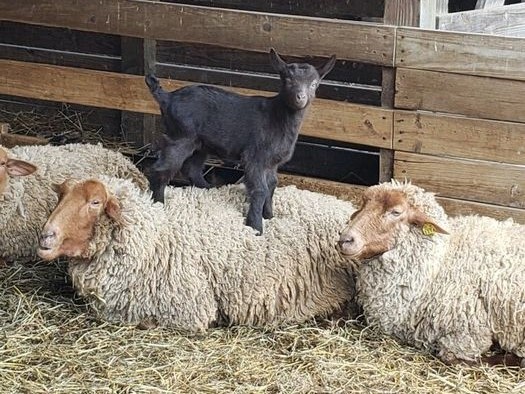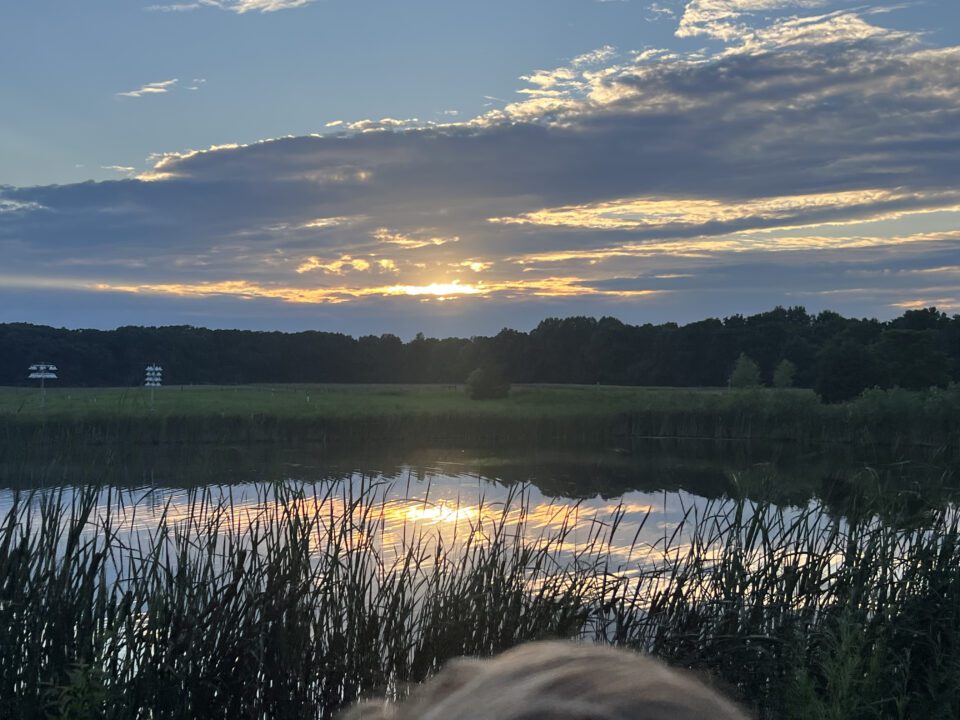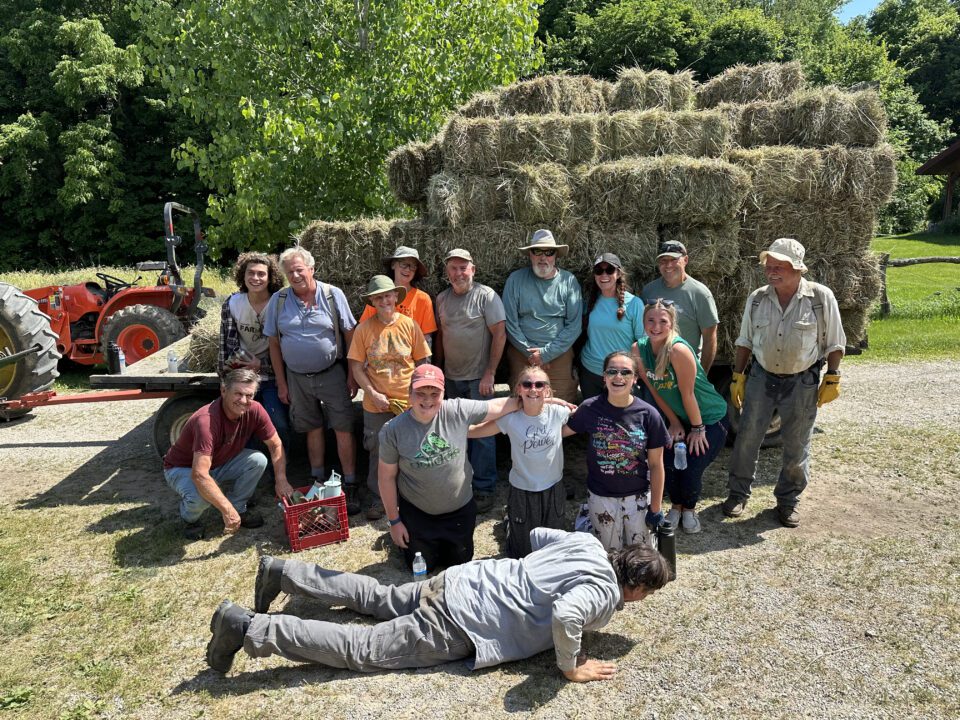
Twin Lambs Announce Spring is Around the Corner
March 16, 2013
Kid Goats Finally Put in an Appearance at Stratford
May 18, 2013Published in The Delaware Gazette: April 20, 2013
Adults and children alike have been searching for the spotted and smallmouth salamanders at Stratford Ecological Center on Liberty Road, ever since the salamanders crossed the farm lane to reach the vernal pool to reproduce. The migration happened on a cool, rainy evening and coincided with a square dance held on March 15. Last year’s dance was two weeks earlier, and migration occurred on that night too! Both times it caused traffic congestion as the salamanders were hand carried across the lane.
These harbingers of spring are always welcome, along with the tiny spring peeper frogs.
However, the anticipated warmth did not materialize as six inches of snow fell the last week of March, with week-long temperatures reading fifteen degrees below normal. The salamanders proved elusive, as they retreated into the soil or under fallen tree trunks, and the grass and trees showed no signs of greening.
The unusual weather resulted in the soils drying out, and as summer-like temperatures arrived the first weekend of April, we became more anxious for rain. It arrived by mid-week, along with strong lightning. The downpours filled the ruts in the fields and covered the path to the vernal pool, much to the delight of the visiting school children.
It seemed the fields turned green overnight. Farmer Jeff shared that in his opinion it WAS an overnight phenomena, due to the lightning’s huge energy. This energy broke down the nitrogen in the atmosphere and allowed it to combine with oxygen to form nitrogen oxides. These oxides then dissolved in the rain and formed nitrates, which dropped to the soil and fed the hungry plants causing them to grow and turn green.
The farm yard is pretty torn up, and we are allowing the animals to range further to graze on new grass, in order to condition their rumens to handle the future lush growth. If we don’t, the result will be the same as our eating lots of rich food, and having it pass right through us!
Other than the small bales of nutritious hay set aside to feed the nanny goats, due to kid momentarily, we have run out of hay. As small hay bales continue to fetch a high premium, we purchased six round “corn stalk” bales to supplement the cattle feed.
All the golden straw bales, brought in from Bellefontaine after the spelt crop failure, have been utilized, so we also purchased six round bales of wheat straw for bedding and mulch.
Apollo, the buck goat, spent a few days penned in the barn AFTER Farmer Jeff and volunteers failed to secure the “teenage” female goats in their own fenced pasture. A strong electric current flowed through the strands of wire, and reinforced the wooden fence separating the youngsters from Apollo and the nannies. But as soon as Farmer Jeff’s back was turned, two of the more amorous goats forced their way under the wire to visit Apollo. They were retrieved, and Apollo removed, just in case they tried again. Evidently once was enough, and Apollo was soon reunited with the nannies.
The triplet lambs, born 5 weeks ago, have needed extra attention since birth, and continue to receive supplementary bottles of milk to augment their mother’s limited supply. They are getting fat with the regular feeding. Usually, a lamb gets a little and then perhaps a lot of milk, from its mother, and this allows the milk time to digest and not turn into fat. With bottle fed lambs any excess milk does become fat. The triplets are fortunate to drink some milk from their mother. This passes on her immunities, particularly to parasites. Fifty percent of bottle-fed lambs succumb to parasite infestation.
I am happy to share news of an exciting apiary program being renewed at Stratford, on a much greater scale than in the past. Under the guidance of Dave Noble, whose family once managed the bee hives, we are in the process of establishing 20 hives. Our mission is to increase the awareness and understanding of the vital role of honeybees in agriculture and our ecology, and to promote and foster beekeeping and beekeepers through an apprenticeship program.
‘Founding members’ are invited to join a CSA (Community Supported Agriculture) donation program to offset the cost of the bees and the hives, in return for a variety of educational opportunities. A separate CSA program offers the opportunity to buy shares in exchange for honey. We are frequently asked “Do you keep bees?” Now we can answer yes, and fill a need that will surely grow. We welcome your involvement.
“Farm Connection” is a monthly article connecting city folk to life on the Stratford Ecological Center farm. It is published on the second Saturday of the month on the farm and garden page of The Delaware Gazette.





